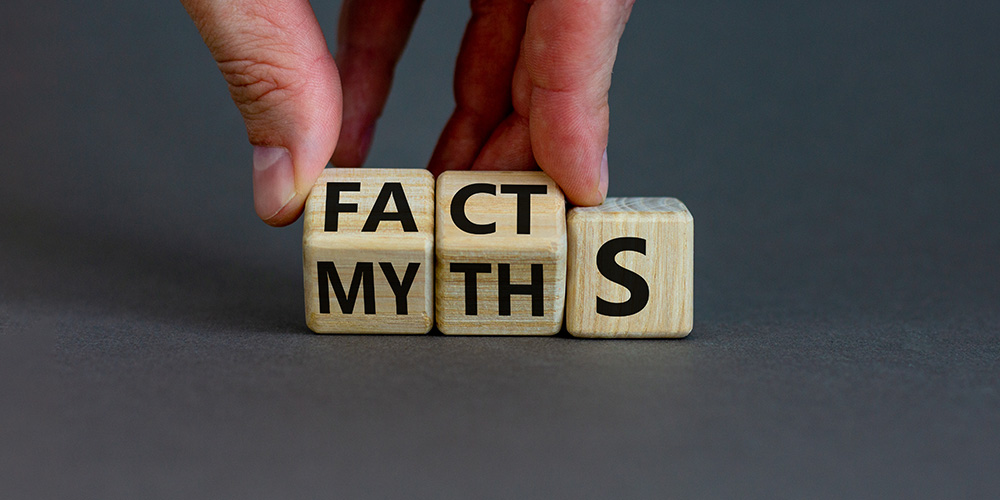Most people have encountered weight loss. However, once you start working on it, it may not be that easy because there are many myths that are not true. We will highlight the most common of them and explain why they are not true.
You should not eat after six o’clock
One of the most common myths in the world of weight loss is that you should not eat after six o’clock. In reality, when it comes to weight loss, the quantity and quality of food matter more than the time you eat it [Davis et al., 2022]. But there is some truth here – food intake should ideally be distributed more evenly throughout the day and you should make sure that the portion of food eaten in the evening is not the largest. It is also worth avoiding eating large amounts of food immediately before going to bed because if your stomach is very full when you go to bed, this can inhibit the quality of your sleep.
You should not eat carbohydrates when losing weight
Carbohydrates are often seen as the cause of weight gain. In fact, carbohydrates are an essential part of a healthy diet and the preferred source of energy for the human body.
It is important to know that there are different types of carbohydrates: simple carbohydrates and complex carbohydrates.
Simple carbohydrates are mainly found in various sweets and sweetened drinks. Foods high in added sugar are usually high in energy, so it is better to eat them less often.
Complex carbohydrates are fibre-rich whole grains, vegetables, legumes, fruits and berries. Fibre increases the volume of food in the stomach, creating a longer-lasting feeling of fullness, which in turn helps regulate the amount of food eaten [Slavin, 2013].
Bariatric surgery surgery is a quick fix
Although awareness is increasing, people sometimes tend to think that bariatric surgery is a quick fix. However, surgery is generally used as a last resort when other methods have failed.
Every surgery carries risks. Surgery alone is not enough – long-term weight loss success depends on changing eating and exercise habits. In some cases, weight may start to creep back up if a person does not make permanent lifestyle changes and continues with old habits.
References
Davis R, Rogers M, Coates AM, Leung GKW, Bonham MP. The Impact of Meal Timing on Risk of Weight Gain and Development of Obesity: a Review of the Current Evidence and Opportunities for Dietary Intervention. Curr Diab Rep. 2022;22(4):147-155. doi:10.1007/s11892-022-01457-0
Slavin J. Fiber and prebiotics: mechanisms and health benefits. Nutrients. 2013;5(4):1417-1435. Published 22 April 2013. doi:10.3390/nu5041417
